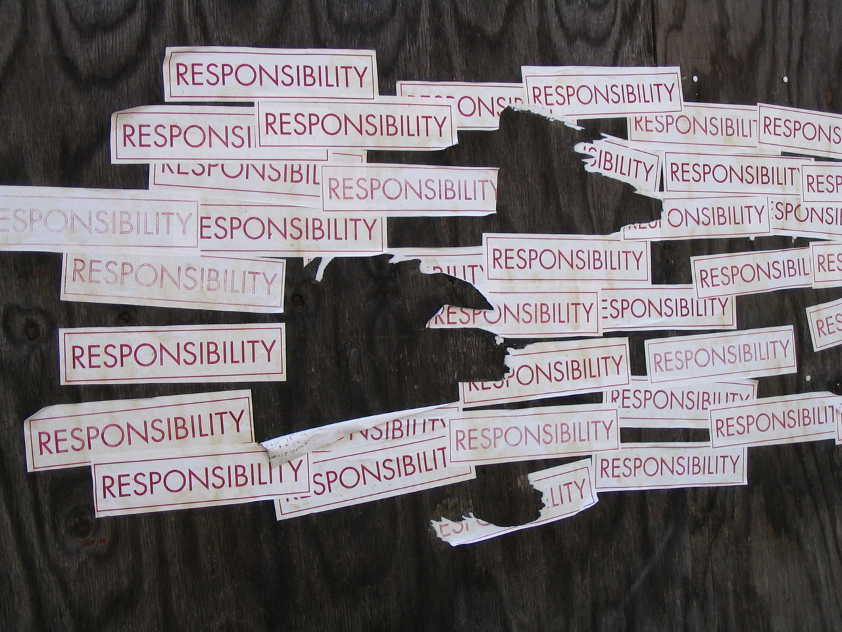Responsibilities Of A Publisher: The Independent’s Perspective
Responsibilities Of A Publisher: The Independent’s Perspective
This article was made to accompany my previous article Independent Publishing With CJ Standal. This article will outline the responsibilities of a publisher. As well as explain how an independent publisher would have to see to these responsibilities.
Acquisition: Deciding which book to publish.
- As an independent publisher, your own comic would be a good place to start.
Planning: Making sure you know what needs to be done. It’s making sure that you have steps and schedules set up for completing a comic so that the publisher has what they need in order to start the process of both producing and distributing to readers.
- For an independent publisher, this means a lot of work that is usually done all by themselves.
Editing: It’s all about dotting your ‘i’s and crossing those ‘t’s and making sure that everything looks consistent and makes sense. As individuals, we can’t expect to be effective and efficient as our own editors. A good rule of thumb, don’t edit your work yourself. Get yourself someone who is willing to put up with your writing.
- Independent publishers most often end up doing this step themselves. Friends, family and or peers are usually available to make sure that this step is done correctly.
Designing: All about selecting how a book will appear to the consumer as they pass it on the shelves or scroll through a web page. You want your work to be unique. Publishing companies generally hire a designer to complete this step.
- If you don’t know how to illustrate, you are going to have to look for an illustrator. Illustrators make covers that will stand out even if it stands next to all those big shot comic books out there. If you are a creator who doesn’t know how to draw, you’re going to have to pay for this one.
Art Directing: Managing the direction you want your art to take. What style do you want to use? Do you have character sketches pre-made to ensure consistency throughout your comic? How do you want to be interpreted? These are questions an art director hired by a publisher may want to have answered. Then make sure that whatever the designer does matches that, or in an ideal world, improve your original opinion.
- The independent publisher would either take this job themselves or trust their illustrator to do a great or even better job that they could hope for.
Like the article so far? Support the production of more articles like this one!
Copyediting: The process where someone goes through the entire comic in order to catch all your little mistakes. The publisher usually hires people for this position. They perform fact checks and round out the rough edges in your work. You can hate them, or in my case love them, but you are going to need them.
- Independent publishers don’t generally get the benefit of a copyeditor. Instead, they have to go through it all themselves or ask friends, family, and peers.
Product Management: Deciding who prints your work: where to have your e-books designed if you even want an e-book version of your comic. As the production manager, your job is to figure out how to get everything to happen, as well as to have it happen on time. A lot of publishers will have creators pay for the printing, at least in the beginning. Keep this in mind if you are looking to get published.
- As an independent publisher, you end up taking this job.
Distribution: Making sure that your comics reach places where your market, your readers, can obtain them. This job includes finding the ideal distributor and finding retailers, online or brick and mortar, to sell your work.
- This is the fun part… not so much actually. As an independent publisher, you may need to work with a distribution company to get your work available to your readers. This is usually the most difficult step of any publisher. Before you even get your comics to your lovely readers you may need to spend a substantial amount of time contacting retailers who can be sold on the idea of carrying your comics.
Selling: A publisher also needs to find ways to sell their works to bookstores, comic book shops, and libraries, so that they may hold your work in stock for potential readers. The question then becomes, will you hire a volunteered sales force, or a paid one?
- Once again, independent publishers usually do this job themselves. In today’s market consumers really appreciate being sold comics directly by the creators/owners; take advantage of this trend! Do keep in mind, not much in this world sells itself.
Marketing: People just don’t go up to a shelf and pick a random comic anymore. It’s a little more complicated than that. People will read reviews, see an add on their social media, get a recommendation from a friend (one of the most valuable forms of advertising), read a comic online for free, seeing an author on the television or at a book signing.
- As an independent publisher, you’ll have to invest a large portion of your time marketing your work: going on tours, book signings, attending conventions and holding your own booth in them. This stuff does take a lot of time to plan out, so maybe you can benefit from hiring a marketing specialist.
This list of responsibilities may seem daunting at first, but once you get started it has a tendency of making things run a little smoother. If you are an independent publisher take heed of these responsibilities, understand them, and plan for them.
Sign Up For
The Unknown Times!
Content Updates
Website News
Recommended Reading
And More to Come!
*Once every two weeks!*
Liked the article? Become part of my Patreon Community!
About The Author

Phillip Allen
Writer, Editor, and Founder of Unknown Comics
Hello there! My name is Phillip Allen and I'm the writer, editor, and founder of Unknown Comics. I am an aspiring comic book creator. In an attempt to learn how to create my own comic I came to learn just how few reliable resources existed out there. From a few books and unhelpful websites I decided to focus my attention on researching and writing a resource for both myself and the rest of the comic creating industry. This website and and its content is the result of all of that hard work.

